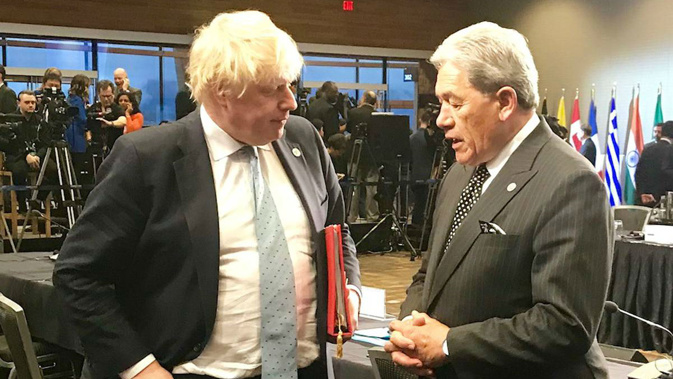
Foreign Minister Winston Peters is calling for "maximum pressure" to be applied on North Korea, following an international meeting that revealed that hundreds of thousands of international airline passengers are within range of North Korean missiles.
The meeting of 20 foreign ministers in Vancouver, Canada, was held overnight and co-hosted by Canadian foreign minister Chrystia Freeland and US Secretary of State Rex Tillerson.
It aimed to show international solidarity in pursuing the denuclearisation of the Korean peninsula.
"The meeting has showed a strong and united resolve to persuade North Korea to abandon its weapons programmes," Peters in a statement.
"It underscored the urgency of making progress on this and called for the full implementation of UN sanctions on North Korea. While it welcomed the dialogue that has begun between North Korea and South Korea, all agreed that maximum pressure needs to be applied to the regime."
North and South Korea have recently agreed to include a North Korean team in the Seoul Winter Olympics next month, as well as reopen a hotline between the two countries.
Fears over North Korea's nuclear ambitions have been growing, escalated by an exchange this month between leader Kim Jong Un and US President Donald Trump over the size of their respective nuclear buttons.
That fear turned to panic for some people in Japan and Hawaii, when two mobile alerts about incoming missiles were mistakenly sent out in the past week. The one in Japan on Tuesday was corrected after five minutes, but the Hawaii error on Sunday took nearly 40 minutes to correct.
At the meeting's opening, Tillerson warned that North Korean missiles could take out airline passengers.
"On November 28, individuals on the flight travelling from San Francisco to Hong Kong witnessed with their own eyes parts of the North Korea Intercontinental Ballistic Missile test flying through the sky."
The Federal Aviation Administration said the flight was 280 nautical miles from the point of impact.
"Over the course of that day, according to the Department of Defense, an estimated 716 flights were due to pass within that range. The FAA says the total available seats on those 716 flights were 152,110 - that's a lot of people from a lot of countries being put at risk by an irresponsible testing of ballistic missiles."
He suggested improved maritime interdiction operations to end illicit ship-to-ship transfers would help enforce the UN sanctions that were passed in December.
In his opening remarks, Japanese Foreign Minister Tarō Kōno urged countries to take action on top of the sanctions.
"This could include cutting off diplomatic ties with North Korea, as well as repatriating North Korean workers."
British Foreign Secretary Boris Johnson said that the crisis over North Korea was intensifying.
"We've had 20 tests in the last year - 20 missiles, two of which flew over Japan, one testing of a nuclear device. The risk is not only proliferation within the region, but also, of course, of transmission of nuclear weaponry to non-state actors, to terrorist groups, with unthinkable consequences for the world."
He said despite the sanctions, North Korean leader Kim Jong Un had not been deterred from his nuclear programme.
"Our job collectively now is to send out a very clear message that we want to intensify that pressure."
The meeting involved 20 countries including Australia, Canada, France, India, Japan, South Korea, the UK, and the US, but China and Russia did not attend.
Both nations were members of the six-party talks to bring peace to the region, and are considered key to de-escalating the tension.
Take your Radio, Podcasts and Music with you









